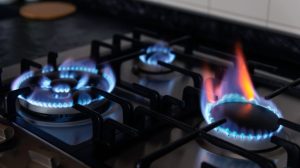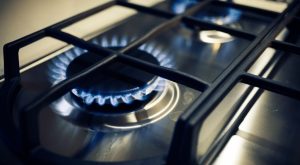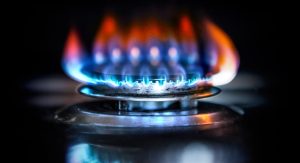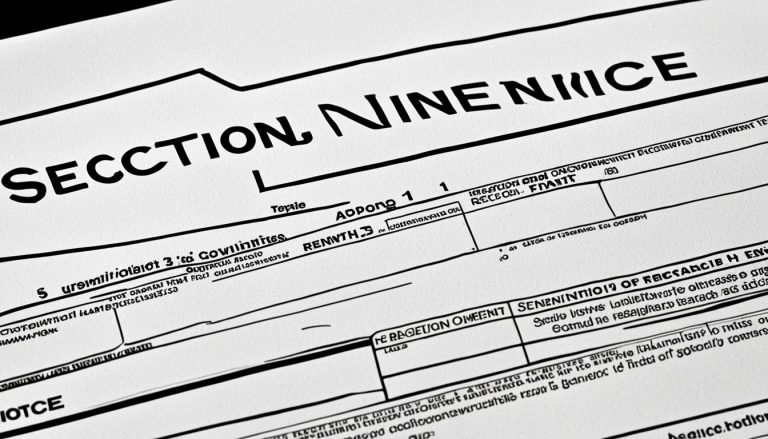As a landlord, one of the most critical responsibilities you have is ensuring the safety of your tenants. One essential aspect of this is securing a Landlord Gas Safety Certificate.
This document isn’t just a formality—it’s a legal requirement under UK regulations and plays a crucial role in protecting both your tenants and your property.
In this guide, I’ll explain everything you need to know about the Landlord Gas Safety Certificate, including what it is, why you need it, how often it’s required, and what happens if you don’t have one.
By the end, you’ll have a clear understanding of your obligations and how to remain compliant with the law.
What is a Landlord Gas Safety Certificate?

A Landlord Gas Safety Certificate, also known as a CP12 Certificate, is an official document that certifies that all gas appliances, flues, and fittings in a rental property have been checked and deemed safe for use. This certificate is issued by a Gas Safe Registered Engineer after a thorough inspection.
The key details typically included in the certificate are:
- Details of the property: The address where the inspection took place.
- Gas appliances tested: Each appliance (like boilers, cookers, and heaters) will be listed individually, along with their status.
- Safety checks performed: The specific tests and inspections that were carried out.
- Results: Any defects identified and recommendations for corrective action.
- Date of inspection: The date the inspection was completed.
- Details of the Gas Safe engineer: The engineer’s name, company, and Gas Safe registration number.
This certificate ensures that your property meets the safety standards set out in the Gas Safety (Installation and Use) Regulations 1998.
Why Do You Need a Landlord Gas Safety Certificate?
The need for a Landlord Gas Safety Certificate is driven by both legal obligations and tenant safety. Here are the main reasons why you need one:
1. Legal Compliance
Under the Gas Safety (Installation and Use) Regulations 1998, all UK landlords are required to ensure the safety of their tenants by obtaining and maintaining a valid gas safety certificate. This regulation applies to any property that has gas appliances, such as boilers, stoves, ovens, or fireplaces.
Without this certificate, you are in breach of the law, and enforcement action can be taken against you by the Health and Safety Executive (HSE).
2. Tenant Safety
Faulty gas appliances pose a significant health risk to tenants. Carbon monoxide poisoning is one of the most serious hazards, as the gas is both invisible and odorless. A gas safety check ensures that leaks, poor ventilation, and malfunctioning appliances are identified and resolved before they become a danger.
3. Avoiding Legal Penalties
If you fail to provide a gas safety certificate, you could face fines of up to £6,000 per breach, and in severe cases, you could be imprisoned. If an accident occurs, you could also face legal action from tenants or the authorities, which could result in large compensation payouts.
4. Insurance Claims
If you make a claim on your landlord insurance and the investigation reveals that you did not have a valid gas safety certificate, your insurer could refuse to pay. This could leave you facing thousands of pounds in repair or compensation costs.
What Does the Gas Safety Check Involve?
A gas safety check is a detailed inspection carried out by a Gas Safe Registered Engineer. The process ensures that every gas appliance and flue in the property is functioning properly and safely.
Here’s what the engineer will check:
- Gas Appliances
- Each appliance (like boilers, heaters, and stoves) is checked to ensure it is operating correctly and not releasing any dangerous gases.
- Gas Tightness Test
- The engineer will check for any gas leaks. They use specialist equipment to measure the flow of gas and detect leaks.
- Flue Inspection
- The engineer ensures that flue pipes are properly ventilating gas emissions from appliances. If flues are blocked or damaged, carbon monoxide could enter the property.
- Ventilation Check
- Proper ventilation is essential for gas appliances to work safely. If ventilation is obstructed, it could lead to dangerous buildups of gas.
- Safety Devices
- Safety devices like flame-failure devices (which cut off the gas if the flame goes out) are checked to ensure they are functioning correctly.
If any problems are found, the engineer will mark them on the certificate and may label the appliance as “unsafe to use.” Repairs must be made before a certificate can be issued.
Who Can Issue a Landlord Gas Safety Certificate?
Only a Gas Safe Registered Engineer can issue a Landlord Gas Safety Certificate. These professionals are qualified to conduct the inspection and certify that the gas appliances are safe for use.
To verify an engineer’s credentials, you can:
- Check the engineer’s Gas Safe ID card (they are required to carry it at all times).
- Visit the Gas Safe Register website and search for the engineer or company name.
Hiring a non-certified person to conduct the inspection is illegal, and any certificates they issue are invalid.
How Often Do You Need a Landlord Gas Safety Check?
Landlords are required to complete a gas safety check every 12 months. This means you need to schedule a new inspection at least once a year to ensure ongoing compliance.
Key points to note:
- You must provide your tenants with a copy of the most recent certificate.
- If your certificate expires, you risk being fined and facing legal action.
- Inspections can be scheduled up to 2 months before the current certificate expires, allowing you to maintain continuous coverage.
How to Get a Landlord Gas Safety Certificate?

Obtaining a Landlord Gas Safety Certificate (also known as a CP12 Certificate) is a legal obligation for landlords in the UK. This process ensures that all gas appliances, flues, and fittings in a rental property are safe to use. If you’re unsure how to get a gas safety certificate, follow this step-by-step guide.
Step 1: Identify When You Need the Certificate
A gas safety certificate is required in the following situations:
- Annually: Landlords must arrange a gas safety check every 12 months.
- New Tenancy: Before a new tenant moves into the property, you must have a valid gas safety certificate to give them.
- Renewal of Expired Certificate: If your existing gas safety certificate is about to expire, you must book an inspection in advance to avoid legal non-compliance.
Pro Tip: Schedule your inspection 1-2 months before the certificate’s expiry date. This way, you’ll have time to resolve any issues identified during the check.
Step 2: Find a Gas Safe Registered Engineer
A gas safety certificate can only be issued by a qualified Gas Safe Registered Engineer. These professionals are trained to inspect and test gas appliances, flues, and gas lines to ensure they meet safety standards.
How to Find a Gas Safe Engineer?
- Check the Gas Safe Register: Visit the official website gassaferegister.co.uk to search for a local, certified engineer.
- Ask for Recommendations: Ask local letting agents, property managers, or other landlords for reliable engineers.
- Look for Reviews and Testimonials: Check reviews of local engineers to ensure you’re hiring a reputable professional.
How to Verify if an Engineer is Gas Safe Registered?
- Check the ID Card: Every Gas Safe engineer carries an official ID card. Look for the Gas Safe logo, registration number, and expiry date.
- Online Check: Use the Gas Safe Register website to search for the engineer’s name or company details.
Step 3: Book a Gas Safety Inspection
Once you’ve found a Gas Safe Registered Engineer, schedule an inspection. The process can be quick if you book in advance, but urgent, last-minute bookings may cost more.
How to Book an Inspection?
- Contact the engineer directly: Call, email, or use their online booking system if they have one.
- Provide Property Details: Tell the engineer how many appliances (boilers, cookers, fireplaces) need to be inspected.
- Arrange Tenant Access: Make sure your tenants are aware of the inspection date and time. If the property is vacant, ensure the engineer has access to the building.
Pro Tip: Try to book your gas safety inspection during quieter periods (not peak winter months) to avoid delays and premium fees.
Step 4: Prepare for the Gas Safety Check
To ensure the inspection goes smoothly, you should prepare the property before the engineer arrives. Here’s how you can do it:
- Inform Tenants: Notify tenants about the inspection so they can provide access to the property.
- Ensure Access to Appliances: Make sure all rooms with gas appliances (boilers, heaters, cookers) are unlocked and accessible.
- Check Ventilation: Remove any obstructions that might block air vents or flues.
- Test Appliances: Check if any appliances aren’t working and inform the engineer before the inspection.
Step 5: What Happens During the Inspection?
The Gas Safe Registered Engineer will conduct a comprehensive inspection of all gas appliances, flues, and pipework. Here’s what happens during the check:
Inspection Process
- Check Gas Appliances: Boilers, cookers, fireplaces, and heaters are checked to ensure they operate correctly and safely.
- Check for Gas Leaks: The engineer uses special equipment to detect leaks in the gas supply system.
- Flue and Ventilation Check: They ensure that flues and ventilation systems are clear, clean, and working properly to avoid the build-up of gases like carbon monoxide.
- Test Safety Devices: Any flame-failure devices (which cut off the gas if the flame goes out) are checked for functionality.
If everything is compliant, the engineer will issue a Landlord Gas Safety Certificate (CP12 Certificate) on the spot or send it to you within 24-48 hours.
If an Issue is Found:
- If a gas appliance is unsafe, the engineer may “red tag” the appliance, marking it as “unsafe to use.”
- The engineer will recommend repairs, and you must arrange to have these issues resolved before a valid gas safety certificate can be issued.
Step 6: Receive the Gas Safety Certificate (CP12 Certificate)
Once the inspection is complete, and all gas appliances have passed the safety checks, the Gas Safe Registered Engineer will issue a Landlord Gas Safety Certificate.
What Information is Included in the Certificate?
- Landlord name and address
- Property address (where the inspection was carried out)
- Date of inspection and date of next required inspection
- Details of gas appliances tested (e.g., boiler, cooker, fireplace)
- Engineer’s name, company, and Gas Safe registration number
- Results of safety checks (including pass/fail status for each appliance)
- Recommended repairs or replacements (if applicable)
You must keep a copy of this certificate for 2 years and provide a copy to your tenants within 28 days of the inspection. If you have new tenants moving in, you must give them a copy of the certificate before they move into the property.
Step 7: Share the Certificate with Tenants
As part of your obligations as a landlord, you are legally required to provide a copy of the Gas Safety Certificate to tenants.
- New Tenants: Must be given a copy before they move in.
- Current Tenants: Must receive a copy of the certificate within 28 days of the inspection.
- Multiple Occupancy: If the property has multiple tenants (like an HMO), you must display the certificate in a communal area.
Step 8: Schedule Next Year’s Inspection
To avoid missed deadlines and potential penalties, schedule your next inspection ahead of time. You can book your inspection up to 2 months before the current certificate’s expiry without losing any days.
Many landlords book inspections annually at the same time every year to avoid forgetting. Some letting agents and property management companies offer reminders or even arrange the inspection on your behalf.
What Happens if You Don’t Have a Landlord Gas Safety Certificate?
If you fail to obtain a valid gas safety certificate, you face serious legal and financial consequences. Here’s what could happen:
| Consequence | Impact |
| Fines | Up to £6,000 for each breach |
| Prison Sentence | In severe cases, you could face jail time |
| Insurance Voided | Claims could be denied if you have no certificate |
| Tenant Refusal to Vacate | Tenants may have grounds to refuse eviction |
| Legal Action | Tenants can sue for damages if harmed |
How Much Does a Landlord Gas Safety Certificate Cost?

The cost of a Landlord Gas Safety Certificate varies depending on several factors, including the number of gas appliances in the property, the location of the property, and the rates charged by the engineer. On average, landlords in the UK can expect to pay between £60 and £90 for a gas safety inspection and certificate.
To provide more clarity, here’s a breakdown of typical costs:
| Service Type | Unit Cost + VAT (Low) | Unit Cost + VAT (High) | Average Cost |
| Gas Safe Engineer (1-2 Appliances) | £60 | £90 | £80 |
| Each Additional Appliance | £10 | £25 | £18 |
| Re-Inspection Fee (if required) | £40 | £70 | £55 |
| Emergency Same-Day Service | £80 | £150 | £115 |
| London-Based Engineer (Premium Rates) | £80 | £120 | £100 |
Factors That Affect the Cost of a Gas Safety Certificate
1. Number of Gas Appliances
The number of gas appliances in the property is one of the most significant cost factors. A typical inspection covers one or two gas appliances (like a boiler and a cooker), but if you have multiple heaters, fireplaces, or cookers, you will be charged an additional fee per appliance.
- Example: If you have 3 appliances (boiler, cooker, and gas fire), you may be charged an extra £10 to £25 per appliance in addition to the base price.
2. Location of the Property
The cost of a Landlord Gas Safety Certificate is typically higher in large cities like London, where service charges tend to be more expensive. Engineers in urban areas generally charge more due to higher operational costs.
- Example: While an inspection in a small town may cost £60, the same service in London may cost £100 to £120.
3. Emergency or Same-Day Inspections
If you need a gas safety inspection urgently, such as on the same day, expect to pay a premium. Emergency call-out fees can range from £80 to £150, depending on the engineer’s availability.
- Example: If your current gas safety certificate is about to expire and you need a last-minute inspection, you might be charged £150 for a same-day service.
4. Re-Inspection Fees
If the engineer finds faults during the initial inspection, they may mark the appliances as “unsafe to use” and recommend repairs. Once repairs are made, you will need to book a re-inspection to obtain the certificate.
- Example: A re-inspection typically costs £40 to £70, depending on the engineer and the property location.
5. Discounts for Multiple Properties
If you manage multiple properties, you may be able to negotiate a bulk discount. Many gas engineers offer discounted rates for landlords managing multiple inspections at the same time.
- Example: If you book inspections for 5 properties in the same location, you could receive a discounted rate of £50 per property instead of £80 per property.
How to Prepare for a Gas Safety Check?

Here are some steps to ensure the inspection goes smoothly:
- Inform tenants of the inspection date.
- Provide access to all gas appliances (ensure no rooms are locked).
- Check appliances for obvious issues beforehand (like blocked vents).
Conclusion
Obtaining a Landlord Gas Safety Certificate is an essential legal responsibility for landlords in the UK. It protects your tenants, shields you from legal liability, and ensures you remain compliant with Gas Safety Regulations 1998.
Don’t wait until it’s too late. Book your annual gas safety check today and make sure your property is safe for tenants. A small investment in safety today could save you from costly fines, legal trouble, and potential harm to your tenants.
FAQs About Landlord Gas Safety Certificates
What is included in a gas safety check?
The engineer checks the condition of all gas appliances, flues, and fittings, and ensures there are no leaks or issues that could affect tenant safety.
Can tenants request a copy of the gas safety certificate?
Yes, as a landlord, you are legally required to provide tenants with a copy of the gas safety certificate.
What is the difference between a gas safety check and a boiler service?
A gas safety check ensures appliances are safe, while a boiler service includes maintenance and cleaning.
How long does a gas safety check take?
Typically, it takes 30-60 minutes, depending on the number of appliances inspected.
Do I need a gas safety certificate for a holiday let property?
Yes, if you rent out your property as a holiday let, you must have a valid gas safety certificate for guest safety.
What happens if the gas safety check identifies a problem?
The engineer will flag the issue and may disconnect the appliance if it poses an immediate danger.
Can I be fined for not having a gas safety certificate?
Yes, landlords can be fined up to £6,000 and may face additional legal action.






